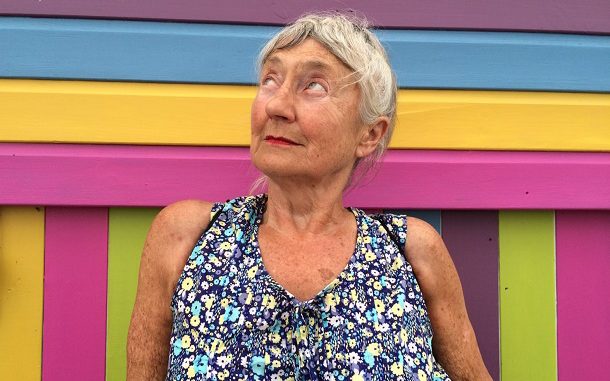
I am only now beginning to understand what people in the 1950s must have been going through during the last polio epidemic. I was one of the last wave of children to be infected before the vaccine was developed.
No one knew how it was passed on, it came out of the blue and killed many. In the polio crisis children were the main sufferers – polio’s earlier name was “infantile paralysis”. I was seven.
Now, at 74, I find myself again in the target group for the new virus, old and already with an immune system that doesn’t like a new challenge.
But my problem is that now I will have to wait to get another replacement hip joint until this is all over. Other disabled people, much more at the forefront of the crisis, are very frightened by what’s happening. As part of Access Thanet – our local disability campaign group – I hear their stories. I will change names.
Anna has multiple sclerosis, has asthma and is recovering from cancer. She’s over sixty and dependent on her wheelchair for getting around her house. She is really vulnerable to the virus so put herself under lockdown three weeks ago and her husband has become her sole carer. Friends and family dare not visit. He’s taking every precaution but with long queues in supermarkets and people still not understanding about social distancing he can’t be sure he’s not bringing infection into the house. And he has no backup if he becomes ill.
Ivy has fibromyalgia, also uses a wheelchair and lives in a small flat. She falls over a lot when she walks round her flat and has had several recent asthma attacks. Her daughter, whose job has ended because of the business closures, has moved in with her to look after her. Now they’re both worrying about council tax and whether Ivy’s benefits will be affected by her moving in and they (to date) haven’t had clear official guidance. And Ivy is only one of thousands who need to know where they stand. Helplines are jammed with worried callers.
One of the biggest problems is carers. They go from vulnerable person to vulnerable person without protective equipment, often poorly paid so scared to go sick themselves as they have families depending on them. And if they stay at home, their clients suffer.
Dave was housed a few years ago in a situation that was supposed to be temporary, in a flat that is up a flight of concrete steps. His condition has further deteriorated since he first moved in and he now needs to use a wheelchair all the time. He is completely dependent on carers as he can’t use his wheelchair outside. He is supposed to be self isolating, but in effect he’s trapped.
It doesn’t just affect the elderly. John is 19 and is also totally dependent on a powered wheelchair as he is almost completely paralysed. Carers are vital to give his mother assistance but she is worried about what happens when one of these highly trained people are off sick, or have to self isolate. She has to have people who know how to use the equipment John needs.
All of these people are dependent on services that need face to face contact, they can’t be dealt with by people working from home. Care workers desperately need to be treated as vital health workers and be given the protective equipment that will keep themselves and the people they look after as safe as possible.
We need urgent action to help people now but when this is over we need fundamental changes in the system to make sure the needs of disabled people are prioritised in housing and social care is properly funded.

